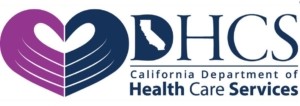The Benefits of Science-Based Addiction Treatment
Table of Contents
Anyone who has struggled with addiction knows how difficult it can be to go through withdrawal, become sober, and maintain long-term abstinence from drugs and alcohol without relapsing. Addiction recovery is often a lifelong journey, which is why it is important to find a drug rehab center like Dana Point Rehab Campus that uses effective and proven science-based therapies to achieve sobriety.
Here is why science-based addiction treatment is important, and why you should choose a drug rehab center that uses these therapies.
What Is Science-Based Addiction Treatment?
Science-based addiction treatments, also known as evidence-based treatments, are therapies that have been proven to deliver successful results and outcomes surrounding retention rates and long-term sobriety. Science-based treatments have been rigorously tested and analyzed in controlled clinical trials, and they have been approved by authorities such as the FDA that have validated their safety and efficacy. A review published in Psychiatric Clinics of North America notes that in addition to having been evaluated for their efficacy in reducing substance abuse, science-based addiction treatments have been assessed for their ability to improve vocational functioning, relationships with friends and relatives, and co-occurring mental health disorders.
Do You or a Loved One Need Treatment for Alcohol or Substance Abuse?
Discover the difference our proven therapies make in your journey to lifelong recovery with an experienced on-site clinical team that provides unique customized, science-based treatment programs for all types of drug and alcohol addictions around the clock.
Call to Speak with a Treatment Specialist Today
What Are the Benefits of Science-Based Addiction Treatment?
The main benefits of science-based addiction treatments are their safety and efficacy, which are top concerns among patients and families exploring options for treatment centers.
Drug and alcohol withdrawal can be extremely dangerous and risky for patients addicted to substances such as heroin, opiates, alcohol, and certain prescription drugs. For instance, people withdrawing from alcohol and benzodiazepines can suffer seizures when quitting these substances abruptly, which is why it can be dangerous to choose a drug rehab center that does not support the use of FDA-approved detox medications proven to relieve symptoms and reduce the risk for complications.
Other benefits of science-based addiction treatment, according to a review published in Health Policy, include:
- Increased quality of treatment
- Increased accountability
- Lower overall treatment costs
- Reliable results
- Standardized protocols
- Increased transparency
- Increased value
- Improved outcomes
Which Science-Based Therapies Are Available at Drug Rehab?
Each science-based therapy offered at drug rehab has been designed to address certain aspects of addiction and their consequences for patients, their families, and their communities, as reported by The National Institute on Drug Abuse. A comprehensive addiction treatment program requires detox and behavioral therapy to achieve the best possible outcome.
Medications
Methadone, buprenorphine, and naltrexone are medications approved for the treatment of opioid use disorders. Methadone and buprenorphine have the ability to prevent opioid withdrawal symptoms and reduce drug cravings so patients can safely detox from opioids while feeling more comfortable and facing a lower relapse risk. Naltrexone blocks the effects of opioids, which means patients who relapse while using this drug will not experience the pleasurable effects of opioids and may be more motivated to stay abstinent.
Acamprosate, disulfiram, topiramate, and naltrexone are medications approved for the treatment of alcohol use disorder. Acamprosate reduces post acute alcohol withdrawal symptoms, while disulfiram causes unpleasant effects when combined with alcohol to reduce one’s desire to drink. Topiramate may help minimize alcohol cravings, while naltrexone blocks the rewarding effects of alcohol.
Medical detox may also involve the use of other FDA-approved medications and protocols for the treatment of certain withdrawal symptoms. For instance, the tapering method may be used to help patients withdraw from prescription drugs, which is the gradual reduction of doses over time until the medication is no longer being used.
Behavioral Therapies
Behavioral therapies help patients become more engaged with addiction treatment, use incentives that motivate them to stay abstinent, and help patients modify harmful attitudes and behaviors related to drug and alcohol use. Behavioral therapies also teach patients how to handle stress and other triggers that may increase the risk for relapse.
Science-based behavioral therapies for addiction include:
- Cognitive-behavioral therapy
- Rational emotive behavior therapy
- Contingency management
- Community reinforcement
- Motivational enhancement therapy
- The Matrix Model
- 12-step facilitation therapy
- Family behavior therapy
Where to Find Science-Based Addiction Treatment
Dana Point Rehab Campus is accredited by the Joint Commission and recognized for providing safe, quality, science-based addiction treatment.
Contact Dana Point Rehab Campus today at 949.569.7517 to learn more about our available drug rehab programs or fill out our free insurance verification form to confirm your insurance benefits.









Leave a Reply
Want to join the discussion?Feel free to contribute!